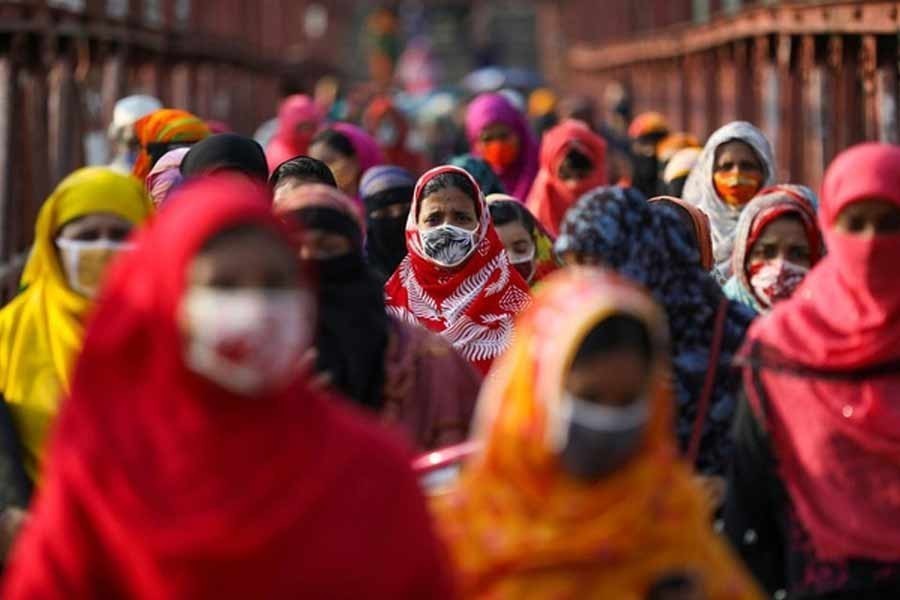Traditionally, budgetary allocations for different sectors of the economy tend to focus on growth, GDP growth in particular. During the past five years, meeting the UN 'Sustainable Development Goals (SDGs), has also become an important consideration during the budget-making exercise.
It is time the nation accepted the fact that it has to live with the pandemic over a longer haul. As such, a balance has to be struck between the needs of life and livelihood and set of fiscal priorities accordingly. Needless to say, in this entire exercise, healthcare issues should necessarily take centre stage.
Prominent economists, health experts and government leaders at a virtual event organised by the Bangladesh Institute for Development Studies (BIDS) on Sunday, underscored the need for casting fresh light on these issues. They, too, were for addressing the issues of public health amid the pandemic with the highest priority. They viewed that pandemic containment measures should be integrated with the government's public health-related strategy and mobilise commensurate budgetary resources for the purpose.
It goes without saying that given the economic as well as socio-cultural realities of the country, tough, nationwide lockdowns will not simply work. The working people, especially, those who survive on their daily earnings, who number tens of millions, would be the worst victims of such lockdowns. Unlike the developed nations, Bangladesh with its limited resources cannot afford to feed these people indefinitely from government coffers. So, in our case, in place of enforcing extreme measures like lockdowns, the public needs to internalise the control measures through effecting changes in their lifestyle. However, that would require the government to make health safety guidelines such as wearing face masks, hand-sanitising and keeping social distance at offices and public places mandatory. Introduction of strict penal measures like fines and detention may also be considered against those found flouting the health safety guidelines.
However, increasing the health care budget alone is also not the sole answer to the problem of pandemic-induced health care emergency.
What is important is to increase the capacities of the project implementing agencies under the health ministry. Going by the experiences of past fiscal years, capacity building of its implementing agencies should receive the highest attention of the authorities concerned.
Another vital weapon that can empower people against the pandemic is vaccine. True, the ongoing vaccination programme had to be cut short due to supply shortage. In the circumstances, the government should redouble its efforts to procure at least the quantity of vaccine - the Covishield or AstraZeneca brand - that would be required to complete the second dose of the first vaccination drive. Going further beyond to the safe shores comes up then. And, considering the rise of vaccine nationalism across the globe, Bangladesh needs to go all-out to procure as well as produce vaccines. Most importantly, it should build its own capacity as fast as possible to produce vaccines. In this connection, Bangladesh must expedite the process of producing the brand of vaccines as agreed with the help from China and Russia.
This is to ensure that Bangladesh is able to vaccinate a substantial proportion of its population to attain herd immunity. So, strengthening the vaccination programme as early as possible should be the administration's topmost priority at the moment.
The government would do well to incorporate the pandemic-induced realities in its development planning in order to square up with the intrinsic requirements of the situation.


